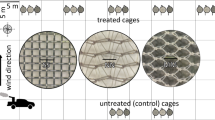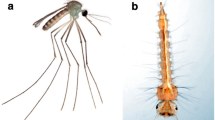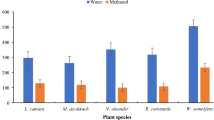Abstract
FOURTH instar larvæ and pupæ referable to Culex (Culex) torrentium Martini were taken in some abundance from water-tanks on allotments at Isleworth, Middlesex, by Mr. Bowles, of the Health Department, on June 19 of this year. They were sent for identification, together with emergent adults, to the British Museum. The name torrentium, is applied provisionally since, as Natvig1 has pointed out, the synonymy of the group is somewhat obscure and requires further investigation. There can, however, be little doubt that this is the Scandinavian species described by Natvig as torrentium.
This is a preview of subscription content, access via your institution
Access options
Subscribe to this journal
Receive 51 print issues and online access
$199.00 per year
only $3.90 per issue
Buy this article
- Purchase on SpringerLink
- Instant access to the full article PDF.
USD 39.95
Prices may be subject to local taxes which are calculated during checkout
Similar content being viewed by others
References
Natvig, L. R., Norsk entom. Tidsskr., Supp. 1 (1948).
Edwards, F. W., “Mosquitoes of the Ethiopian Region”, 3 (1941).
Martini, E., in Lindner, “Die Fliegen”, 3, 11, 12 (1931).
Author information
Authors and Affiliations
Rights and permissions
About this article
Cite this article
MATTINGLY, P. Culex (Culex) torrentium Martini, a Mosquito New to Great Britain. Nature 168, 172 (1951). https://doi.org/10.1038/168172a0
Issue date:
DOI: https://doi.org/10.1038/168172a0



